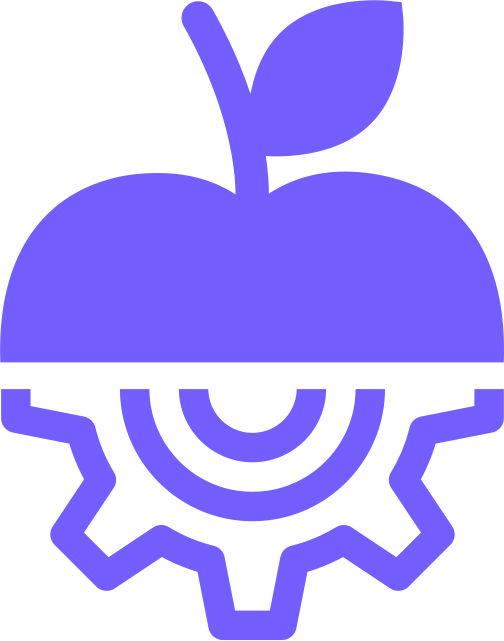Affiliation
a Saint-Petersburg State Agrarian University, Pushkin, St. Petersburg, Russia
b Kemerovo State University, Kemerovo, Russia
Copyright ©Bychkova et al. This is an open access article distributed under the terms of the Creative Commons Attribution 4.0. (
http://creativecommons.org/licenses/by/4.0/), allowing third parties to copy and redistribute the material in any medium or format and to remix, transform, and build upon the material for any purpose, even commercially, provided the original work is properly cited and states its license.
Abstract
Modern agro-industrial and food industry enterprises require continuous improvement of management systems. The complexity and specificity of the agro-industrial production determine the approaches and management methods, which have
to be innovative. The research objective was to examine the role of innovation in controlling, as well as innovative technologies of controlling that can improve management efficiency of food industry enterprises. The research was based on the neosystemic approach. This fundamental method of scientific knowledge was applied to all aspects of the innovative fundamental theory of agroindustrial complex organizations, the role of innovation in the controlling system, and innovative controlling technologies. According to the neosystemic approach, the controlling system was considered as a single system that consists of initial subsystems and uses knowledge and achievements of various fields of science to solve specific problems. As controlling implements the management process at agricultural enterprises, it means that relevant innovations should be developed in the field of agricultural enterprise management. To understand the role of innovation in the controlling system, the authors introduced the concept of ‘managerial innovation’. The choice of specific areas of managerial innovation in controlling should be based on the analysis of the external and internal environment, as well as on the strategic goals and objectives of the specific agricultural enterprise. In terms of its role and functionality, the controlling system is central to the management of the enterprise and, at the same time, has strong relationships with other systems and subsystems. Therefore, in order to select innovative technologies to be used in controlling, it is necessary to designate a range of tasks solved by the main elements of controlling. The paper describes the tasks of the main elements of
controlling. The authors suggest innovative management technologies that can be used in controlling in the context of the main management functions such as planning, accounting, monitoring, and analysis. The approach takes into account the system of goal setting and the decision-making process in food industry. Thus, the main task of the modern controlling system is to form management technologies that use innovation as an element of the management cycle. Innovative technologies can be used in controlling both to achieve a strategic goal and to move to a new level of enterprise development.
Keywords
Innovations,
enterprise,
registration,
controlling,
analysis,
regulation,
management
REFERENCES
- Kontseptsii dolgosrochnogo sotsialʹno-ehkonomicheskogo razvitiya Rossiyskoy Federatsii na period do 2020 goda [The concept of long-term socio-economic development of the Russian Federation for the period up to 2020].
- Druker PF. Innovation and Entrepreneurship. Moscow: Vilʹyams; 2007. 432 p. (In Russ.).
- Kornai Ya. Sistemnaya paradigm [System Paradigm]. Voprosy Ekonomiki. 2002;(4):17–23. (In Russ.).
- Kleyner GB. Ehkonomika. Modelirovanie. Matematika. Izbrannye trudy [Economy. Modeling. Mathematics. Selected Works]. Moscow: Central Economics and Mathematics Institute of the Russian Academy of Sciences; 2016. 856 p. (In Russ.).
- Kleiner GB. Research prospects and management horizons of system economics. Management Science. 2015;5(4):7–21. (In Russ.).
- Bychkova SM, Makarova NN, Zhidkova EA. Institutional role of controlling on the platform of the concepts of systematic theory. ETAP: Economic Theory, Analysis, and Practice. 2018;(5):100–109. (In Russ.). DOI: https://doi.org/10.24411/2071-6435-2018-10050.
- Mazurenko SN. Innovatsii – ehto simbioz gosudarstvennoy i rynochnykh otnosheniy [Innovation is a symbiosis of state and market relations]. Izvestiya. 2008. (In Russ.).
- Volynkina MV. Pravovaya sushchnostʹ termina ‘innovatsiya’ [The legal essence of the term ‘innovation’]. Innovations. 2006;(1):64–69. (In Russ.).
- Lapshov VV. Integrirovannaya sistema innovatsionnogo audita ‘ISIA’ [Integrated system of innovation audit ‘ISIA’]. Stanovlenie, razvitie i perspektivy otsenochnoy deyatelʹnosti v Rossii: Trudy I mezhdunarodnoy konferentsii [Formation, Development, and Prospects of Evaluation in Russia. Proceedings of the 1st international conference]. Moscow, 2008. (In Russ.).
- Fatkhutdinov RA. Innovatsionnyy menedzhment [Innovative management]. St. Petersburg: Piter; 2014. 448 p. (In Russ.).
- Printsipy innovatsionnogo menedzhmenta [Principles of innovation management] [Internet]. [cited 2019 May 01]. Available from: http://center-yf.ru/data/Menedzheru/Principy-innovacionnogo-menedzhmenta.php.
- Grebnev ET. Upravlencheskie novovvedeniya [Management innovations]. Moscow: Economika; 1985. 159 p. (In Russ.).
- Matveev AV. Upravlencheskie innovatsii v deyatelʹnosti rukovoditelya kommercheskoy firmy [Managerial innovation in the activities of the head of a commercial company]. Cand. eco. sci. diss. Moscow: Presidential Academy of Public Administration; 1999. 112 p.
- Karminskiy AM, Olenev NI, Primak AG, Falʹko SG. Kontrolling v biznese. Metodologicheskie i prakticheskie osnovy postroeniya kontrollinga v organizatsiyakh [Controlling in business. Methodological and practical bases for controlling in organizations]. Moscow: Finance and Statistics; 1998. 256 p. (In Russ.).
- Voronin VP, Sokolov VP, Podmolodina IM, Vorotnikov SA. Scientifically-methodical bases of construction of system of controlling at the enterprises of the chemical industry. Voronezh: Voronezh State University of Engineering Technologies; 2006. 224 p. (In Russ.).
- Ananʹkina EA, Danilochkin SV, Danilochkina NG, et al. Kontrolling kak instrument upravleniya predpriyatiem [Controlling as a tool of enterprise management]. Moscow: Audit, UNITY: 1999. 16–17. (In Russ.).
- [Internet]. [cited 2019 May 01]. Available from: http://1c.ru/.
- [Internet]. [cited 2019 May 01]. Available from: https://www.oracle.com/ru/index.htm.
- Ehvans V. Key strategy tools 80+ The tools for every manager to build a winning strategy. Moscow: Binom. Laboratoriya znaniy; 2015. 456 p. (In Russ.).
How to quote?
Bychkova SM, Zhidkova EA, Andreeva OO. Innovative controlling technologies. Food Processing: Techniques and Technology.
2019;49(3):479–486. (In Russ.). DOI: https://doi.org/10.21603/2074-9414-2019-3-479-486.

